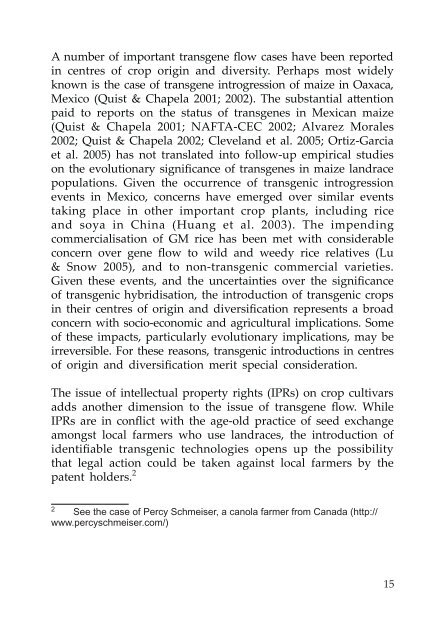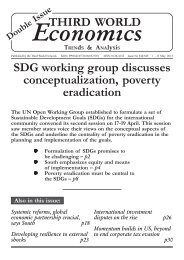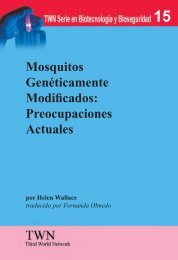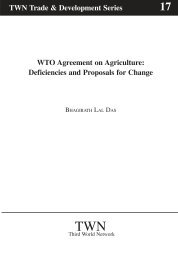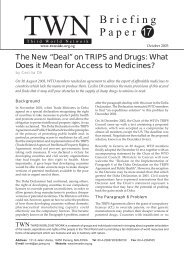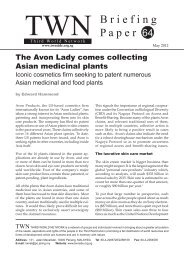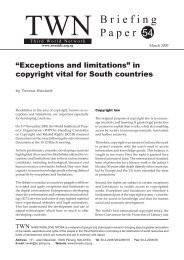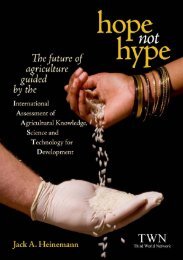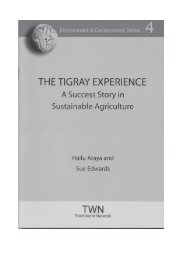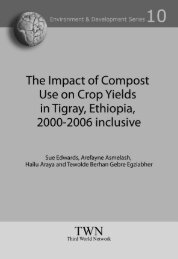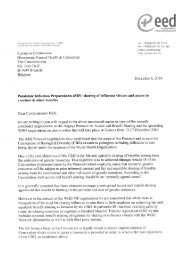gene Flow: Implications for Crop Diversity and Wild Relatives
gene Flow: Implications for Crop Diversity and Wild Relatives
gene Flow: Implications for Crop Diversity and Wild Relatives
- No tags were found...
You also want an ePaper? Increase the reach of your titles
YUMPU automatically turns print PDFs into web optimized ePapers that Google loves.
A number of important trans<strong>gene</strong> flow cases have been reportedin centres of crop origin <strong>and</strong> diversity. Perhaps most widelyknown is the case of trans<strong>gene</strong> introgression of maize in Oaxaca,Mexico (Quist & Chapela 2001; 2002). The substantial attentionpaid to reports on the status of trans<strong>gene</strong>s in Mexican maize(Quist & Chapela 2001; NAFTA-CEC 2002; Alvarez Morales2002; Quist & Chapela 2002; Clevel<strong>and</strong> et al. 2005; Ortiz-Garciaet al. 2005) has not translated into follow-up empirical studieson the evolutionary significance of trans<strong>gene</strong>s in maize l<strong>and</strong>racepopulations. Given the occurrence of transgenic introgressionevents in Mexico, concerns have emerged over similar eventstaking place in other important crop plants, including rice<strong>and</strong> soya in China (Huang et al. 2003). The impendingcommercialisation of GM rice has been met with considerableconcern over <strong>gene</strong> flow to wild <strong>and</strong> weedy rice relatives (Lu& Snow 2005), <strong>and</strong> to non-transgenic commercial varieties.Given these events, <strong>and</strong> the uncertainties over the significanceof transgenic hybridisation, the introduction of transgenic cropsin their centres of origin <strong>and</strong> diversification represents a broadconcern with socio-economic <strong>and</strong> agricultural implications. Someof these impacts, particularly evolutionary implications, may beirreversible. For these reasons, transgenic introductions in centresof origin <strong>and</strong> diversification merit special consideration.The issue of intellectual property rights (IPRs) on crop cultivarsadds another dimension to the issue of trans<strong>gene</strong> flow. WhileIPRs are in conflict with the age-old practice of seed exchangeamongst local farmers who use l<strong>and</strong>races, the introduction ofidentifiable transgenic technologies opens up the possibilitythat legal action could be taken against local farmers by thepatent holders. 22See the case of Percy Schmeiser, a canola farmer from Canada (http://www.percyschmeiser.com/)15


